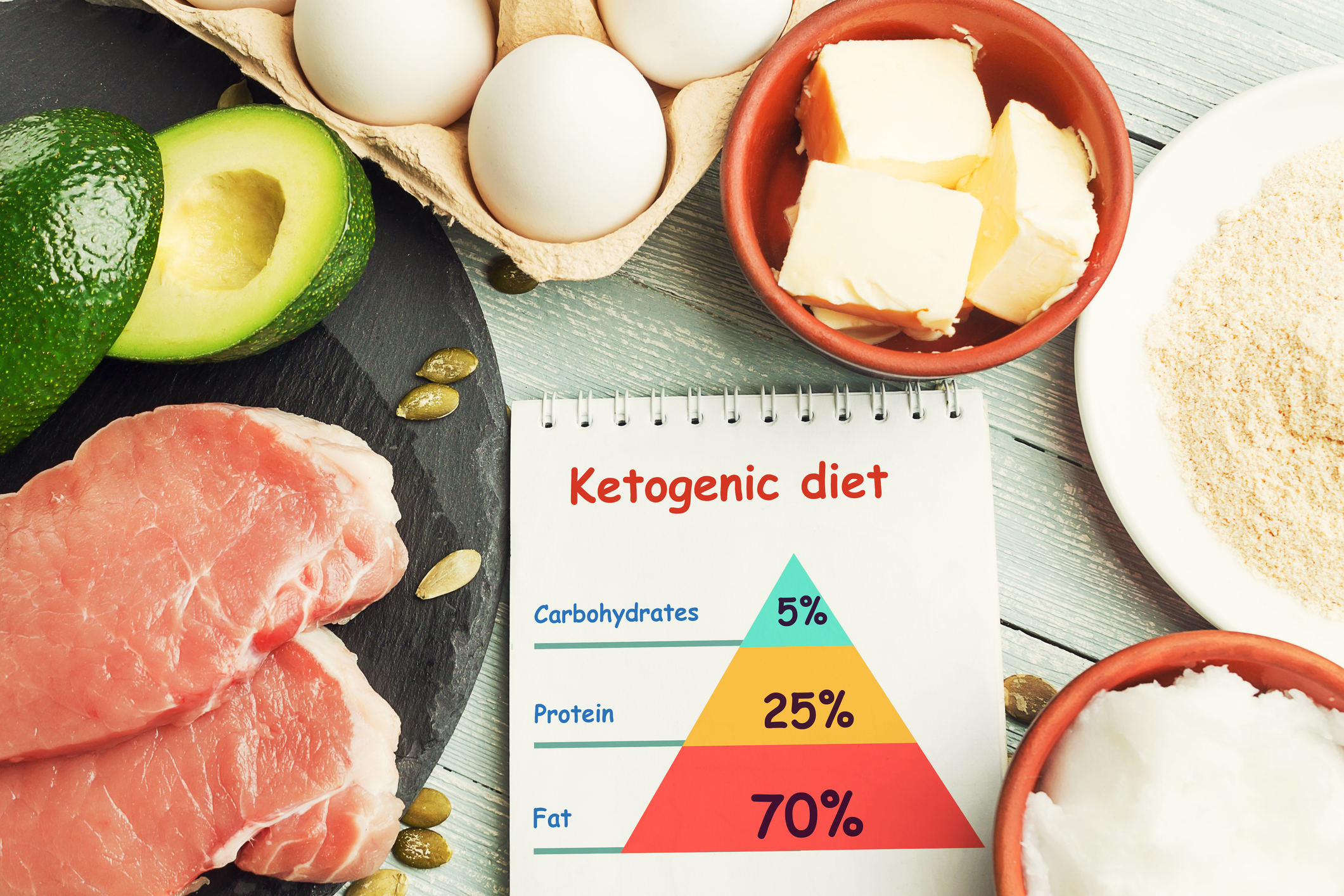Get Easy Health Digest™ in your inbox and don’t miss a thing when you subscribe today. Plus, get the free bonus report, Mother Nature’s Tips, Tricks and Remedies for Cholesterol, Blood Pressure & Blood Sugar as my way of saying welcome to the community!
Keto: The diet that combats polycystic kidney disease

One of the more popular diets for weight loss in recent years has been the ketogenic diet, commonly referred to as keto. This diet is characterized by its extreme reduction in carbohydrate intake, its high intake of fat and its moderate intake of protein.
The whole idea of keto is to trigger ketosis, a process in which the body starts burning fat for energy instead of glucose. It’s considered a healthy way to get rid of belly fat and achieve low insulin levels, which in turn lowers blood sugar levels. Studies also show that it has the potential to help with epilepsy, asthma and cancer.
In the past, keto has been seen as problematic for some people with liver, kidney, pancreas or gallbladder disease. However, recent evidence has emerged that could put one of those concerns to rest — at least in some cases…
The impact of keto on PKD
Polycystic kidney disease (PKD) is a genetic disease in which cysts form in the kidneys, causing them to enlarge and hindering their ability to effectively filter and remove waste from the body. PKD can be painful and often results in the need for dialysis and kidney transplantation.
There is no cure for PKD, and patients are often told that their diet doesn’t make a difference. However, a group of international researchers decided to challenge that belief by taking a closer look at the impact of different diets on PKD.
The researchers recruited 66 PKD patients and randomly put them in one of three groups. The control group received routine PKD counseling. The second group underwent a three-day water fast every month, and the third group followed a low-carb, high-fat keto diet. The patients were closely followed for three months with blood draws and MRI scans.
At the end of the trial period, the researchers found that while the control group experienced the expected growth in the size of their kidneys, the kidneys of the patients on the keto diet stopped growing and even showed a tendency to shrink slightly. The shrinkage wasn’t statistically significant, the researchers say.
That wasn’t the unexpected part. The researchers also found that kidney function improved measurably in the keto group.
“To everyone’s great surprise, kidney function actually improved with the ketogenic diet,” says UC Santa Barbara biologist Thomas Weimbs, whose lab was part of the international collaboration. “And that was a hard outcome of statistical significance.”
Kidney function was measured by the concentration of a protein called cystatin C. When concentrations of this protein in the blood are higher than normal, it indicates the kidney’s filtration system is starting to falter. This symptom worsened in the control group.
“I’m really happy about these clinical trial results,” Weimbs says. “We now have the first evidence in humans that the cysts really don’t like to be in ketosis and that they don’t seem to grow.”
Before this, Weimbs’ lab has been researching the cell mechanisms that underlie PKD and other kidney diseases in mouse models. In an earlier study, they found that kidney cysts shrunk in mice that underwent caloric restriction, which led them to pursue the human trials of keto in PKD.
Keto is just the start
This is the first randomized controlled clinical trial of ketogenic metabolic therapy for PKD.
Patients rated the keto diet “highly feasible” during the study, indicating they were able and motivated to control their condition through diet alone.
“Doctors often assume that their patients cannot adhere to a diet anyway, so they don’t even try,” Weimbs says. “Clearly, this is not true. People with PKD are highly motivated to do something about their condition.”
The next step for the researchers is to conduct clinical trials to assess the efficacy of a medical food specifically developed to assist PKD patients in reaching ketosis. The study will follow 80 patients in Toronto and 200 in Tokyo for a year to see if the medical food in combination with the Ren.Nu plant-focused keto diet is effective.
Weimbs developed the Ren.Nu keto diet in collaboration with renal dieticians specifically for people with PKD. It reduces the focus on meat, which may not be the best option for people with kidney disease, and has four key components:
- Plant-focused, low protein, and alkaline
- Allows people to achieve ketosis
- Avoids renal stressors such as oxalate, uric acid and phosphate that lead to microcrystal formation
- Controls for sodium and encourages hydration
Still, Weimbs notes, there is no one ketogenic diet that fits everyone. He recommends PKD patients consult with their physicians and nutritionists before undertaking any new dietary regimen.
Editor’s note: Did you know that when you take your body from acid to alkaline you can boost your energy, lose weight, soothe digestion, avoid illness and achieve wellness? Click here to discover The Alkaline Secret to Ultimate Vitality and revive your life today!
Sources:
Clinical trial demonstrates that the ketogenic diet is effective at controlling polycystic kidney disease — ScienceDaily
Feasibility and impact of ketogenic dietary interventions in polycystic kidney disease: KETO-ADPKD—a randomized controlled trial — Cell Reports Medicine
Ketosis — Cleveland Clinic
The Science Behind the Nutrition — Ren.Nu














